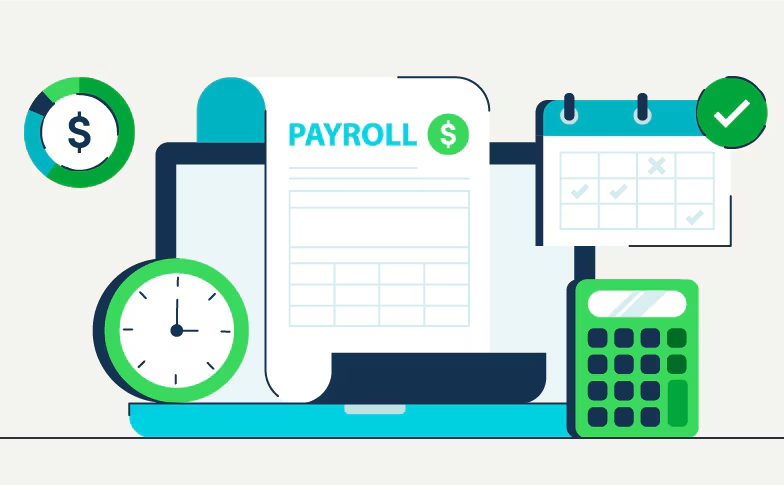Hey there! If you’re a Payroll Manager, HR guru, Global Expansion Director, Finance Manager, CFO, or part of an accounting firm eyeing the GCC (that’s Saudi Arabia, UAE, Qatar, Bahrain, Oman, and Kuwait), you already know that expanding into new territories is exciting. But let’s be real, payroll can be a headache, especially in highly regulated markets. Get it wrong, and you’re looking at some serious frowns from the authorities, not to mention potential fines and a dent in your hard-earned reputation.
At Masdar EOR, we live and breathe GCC payroll. What makes us special? We hold direct Employer of Record (EOR) licenses across all six GCC countries. This isn’t just a fancy badge; it means we’re not outsourcing your critical payroll functions to a third party in these countries. We are the party. This direct approach gives you, and us, a level of control, compliance, and local know-how that’s pretty hard to beat.
So, let’s talk about keeping your payroll smooth and compliant in the GCC.
Understanding the Payroll Game in the GCC (and Why It’s a Big Deal)
Payroll compliance simply means playing by the rules when it comes to paying your team. And trust us, governments across the GCC have a keen interest in making sure everyone is paid correctly and on time. These rules aren’t just suggestions; they’re legal requirements covering everything from how much you pay to how you report it.

Certain industries, by their very nature, are under a tighter microscope. Think about:
- Energy (especially oil & gas and renewables)
- Information Technology (with data privacy being key)
- Healthcare
- Finance and Banking
- Construction and Engineering
- Defense and Aerospace
If your business operates in these or similar sectors, you can expect even more stringent payroll and employment regulations. Why? Because governments want to protect consumers, shareholders, and of course, the employees themselves.
In the GCC, this means navigating a landscape that includes:
- Hiring and Firing: Specific processes, notice periods, and end-of-service gratuity calculations.
- Local Labor Laws: Each GCC country has its own comprehensive labor law.
- Income Tax (or lack thereof for employees, mostly!): While generally there’s no personal income tax for employees, understanding corporate tax, VAT implications, and any specific free zone regulations is crucial.
- Social Security Systems: Contributions for GCC nationals (like GOSI in KSA) are mandatory and have strict rules.
- Reporting Requirements: Think WPS (Wages Protection System) in countries like the UAE and KSA, which mandates salary payments through approved channels.
- Foreign Personnel: Visa sponsorships, work permit rules, and differing regulations for expatriate employees.
- Leave Entitlements: Annual leave, sick leave, public holidays, maternity leave – all prescribed by law.
- Nationalization Policies: Requirements like Saudization, Emiratization, etc., impact recruitment and HR.
Messing up here isn’t an option. For instance, non-compliance with the Wages Protection System (WPS) in the UAE can lead to fines and even suspension of new work permits. In Saudi Arabia, incorrect GOSI contributions can result in penalties and back payments. It’s not just about the money; it’s about your license to operate and your reputation as a fair employer.
Key GCC Payroll Essentials You Can’t Ignore
To keep your business on the right side of the law in the GCC, you need to be on top of these key areas. This is where having a partner like Masdar EOR, with our direct licenses and on-the-ground teams in KSA, UAE, Qatar, Bahrain, Oman, and Kuwait, becomes invaluable.
- Wages Protection System (WPS): Mandatory in several GCC countries (like UAE, KSA, Qatar, Oman, Bahrain, Kuwait). It ensures timely and accurate salary payments through registered agents/banks. We handle this seamlessly.
- Social Security for Nationals: Each GCC country has its own system for national employees (e.g., GOSI in KSA, GPSSA in UAE). Contributions are mandatory, and calculations must be precise.
- End-of-Service Gratuity (EOSG): This is a statutory payment due to employees upon termination/resignation, calculated based on their last salary and length of service. Accruing and paying this correctly is vital.
- Leave Management: From annual leave to sick leave and public holidays, everything is legislated. Proper tracking and payment for unused leave upon termination are essential.
- Work Permits and Visas: For your expatriate workforce, ensuring valid residency and work permits is fundamental. This is often linked to payroll processing.
- Data Protection: Emerging data protection laws (like KSA’s PDPL) mean handling employee data with care and in compliance with local regulations.
- Accurate Record Keeping: Maintaining detailed and accurate payroll records, employment contracts, and attendance data isn’t just good practice; it’s a legal requirement and crucial for audits.
With Masdar EOR, you’re not just getting a processor; you’re getting expert guidance rooted in direct, local experience across all these areas.
Actionable Steps for Smooth GCC Payroll (with Masdar EOR by Your Side)
Keeping everything ticking over nicely involves a few key habits:

- Conduct Regular Audits (Let Us Help!): Internally reviewing your payroll data is smart. Even better, let an expert take a look. At Masdar EOR, our local teams can help you spot any discrepancies or potential red flags before they become problems. We’ll help you:
- Ensure only active employees are paid, and their pay matches their contracts.
- Verify work hours, overtime, allowances, and deductions against GCC labor laws.
- Check calculations for social security and end-of-service gratuity accruals.
- Ensure compliance with WPS requirements.
- Review recent changes in GCC labor laws and adjust processes.
- Stay Updated on Regulatory Changes (That’s Our Job!): GCC labor laws and payroll regulations aren’t static. They evolve. Trying to keep up across six different countries can feel like a full-time job!
- That’s where we come in. As your EOR partner with direct licenses, Masdar EOR is constantly monitoring these changes. We keep you informed about what’s new and how it impacts your payroll in Saudi Arabia, the UAE, Qatar, Bahrain, Oman, and Kuwait.
- Implement Robust Payroll Systems (Leverage Ours!): Manual payroll is a recipe for errors and wasted time, especially across multiple GCC countries. You need a system that’s built for this.
- Masdar EOR utilizes proven, compliant payroll systems tailored for the unique requirements of each GCC country. This means automated calculations, timely payments, strong data security, and streamlined reporting, all managed by our local experts.
- Train Your Team (and Lean on Ours): Make sure your internal team understands your payroll processes and why certain things are done the way they are.
- Better yet, rely on Masdar EOR. We handle the complexities, so your team can focus on their core roles. We ensure everyone understands their payslips and how their salary, allowances, and deductions are calculated according to local laws.
Common GCC Payroll Pitfalls (and How Masdar EOR Helps You Dodge Them)
It’s easy to stumble when you’re dealing with complex rules. Some common mistakes we see companies make in the GCC include:
- Misclassifying Allowances: Are certain allowances part of the basic salary for gratuity calculation? This varies and getting it wrong is costly.
- Incorrect End-of-Service Gratuity Calculations: This is a big one. Minor errors can lead to significant underpayments or overpayments.
- Non-Compliance with WPS: Failing to register or pay through WPS can halt your operations.
- Errors in Social Security Contributions: Incorrect calculations or late payments for national employees lead to penalties.
- Keeping Inaccurate Records: Poor record-keeping can cause major headaches during audits or disputes.
- Ignoring Nationalization Quotas: Failing to meet quotas for hiring local nationals can have repercussions.
How do you avoid these? Partnering with a specialist like Masdar EOR. Our direct presence and licenses in all six GCC countries mean we’re experts in these local nuances. We use compliant technology and have local experts dedicated to getting it right, every time.
Masdar EOR: Your Direct Line to Compliant GCC Payroll
Paying your team accurately and on time, while respecting all local laws, is fundamental. In the GCC, the stakes are high, but the opportunities are even higher.
The most straightforward and effective way to ensure payroll compliance across Saudi Arabia, the UAE, Qatar, Bahrain, Oman, and Kuwait is to partner with an EOR that has deep, direct roots in the region.
At Masdar EOR, our direct EOR licenses, integrated HR and payroll solutions, and in-country expert teams are all geared towards one thing: keeping your GCC payroll compliant, efficient, and stress-free. Ready to expand into the GCC with confidence?

Talk to us at Masdar EOR today! Let’s discuss how our direct EOR services can simplify your payroll and HR in the GCC.


